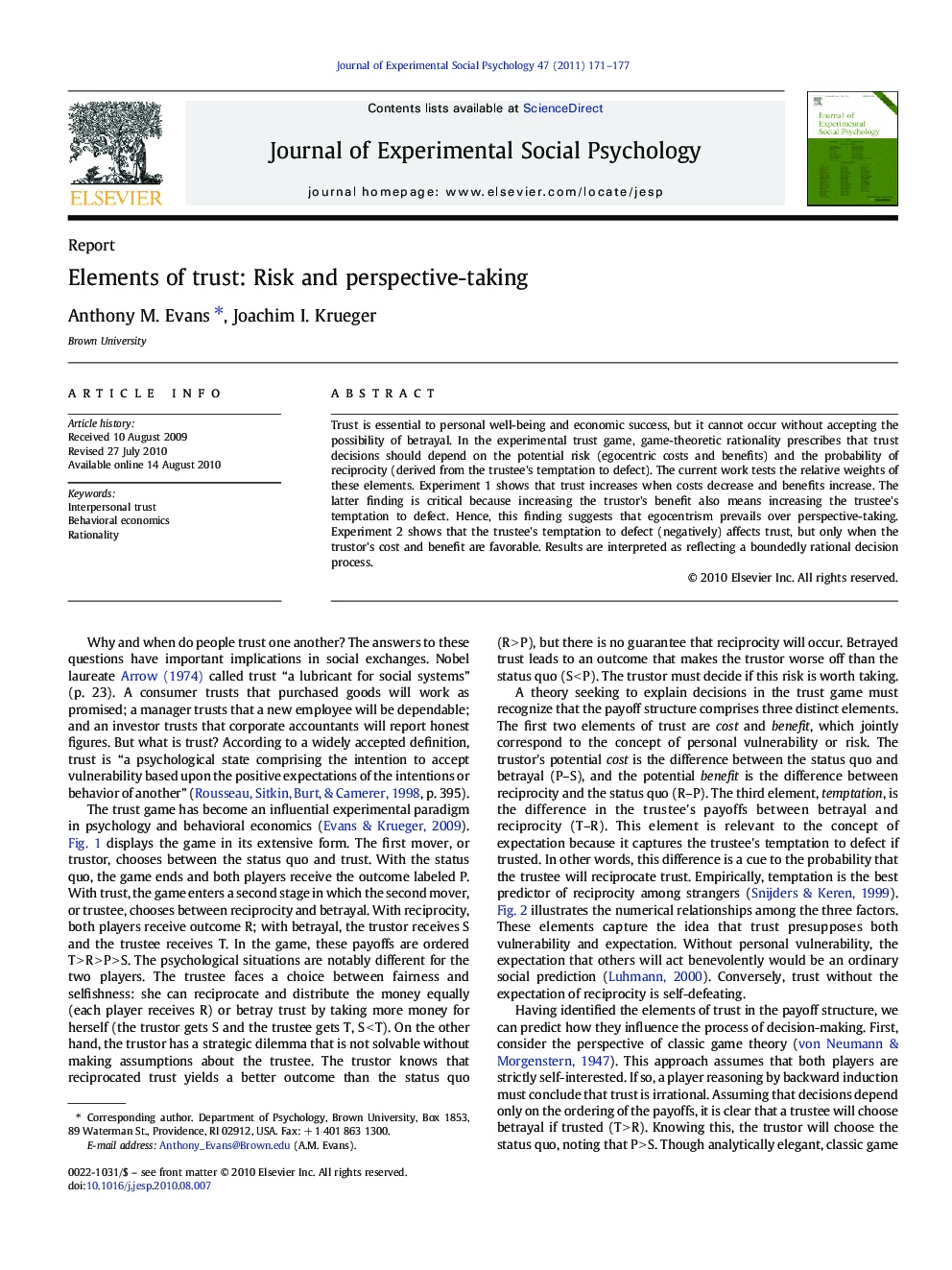| Article ID | Journal | Published Year | Pages | File Type |
|---|---|---|---|---|
| 948340 | Journal of Experimental Social Psychology | 2011 | 7 Pages |
Trust is essential to personal well-being and economic success, but it cannot occur without accepting the possibility of betrayal. In the experimental trust game, game-theoretic rationality prescribes that trust decisions should depend on the potential risk (egocentric costs and benefits) and the probability of reciprocity (derived from the trustee's temptation to defect). The current work tests the relative weights of these elements. Experiment 1 shows that trust increases when costs decrease and benefits increase. The latter finding is critical because increasing the trustor's benefit also means increasing the trustee's temptation to defect. Hence, this finding suggests that egocentrism prevails over perspective-taking. Experiment 2 shows that the trustee's temptation to defect (negatively) affects trust, but only when the trustor's cost and benefit are favorable. Results are interpreted as reflecting a boundedly rational decision process.
